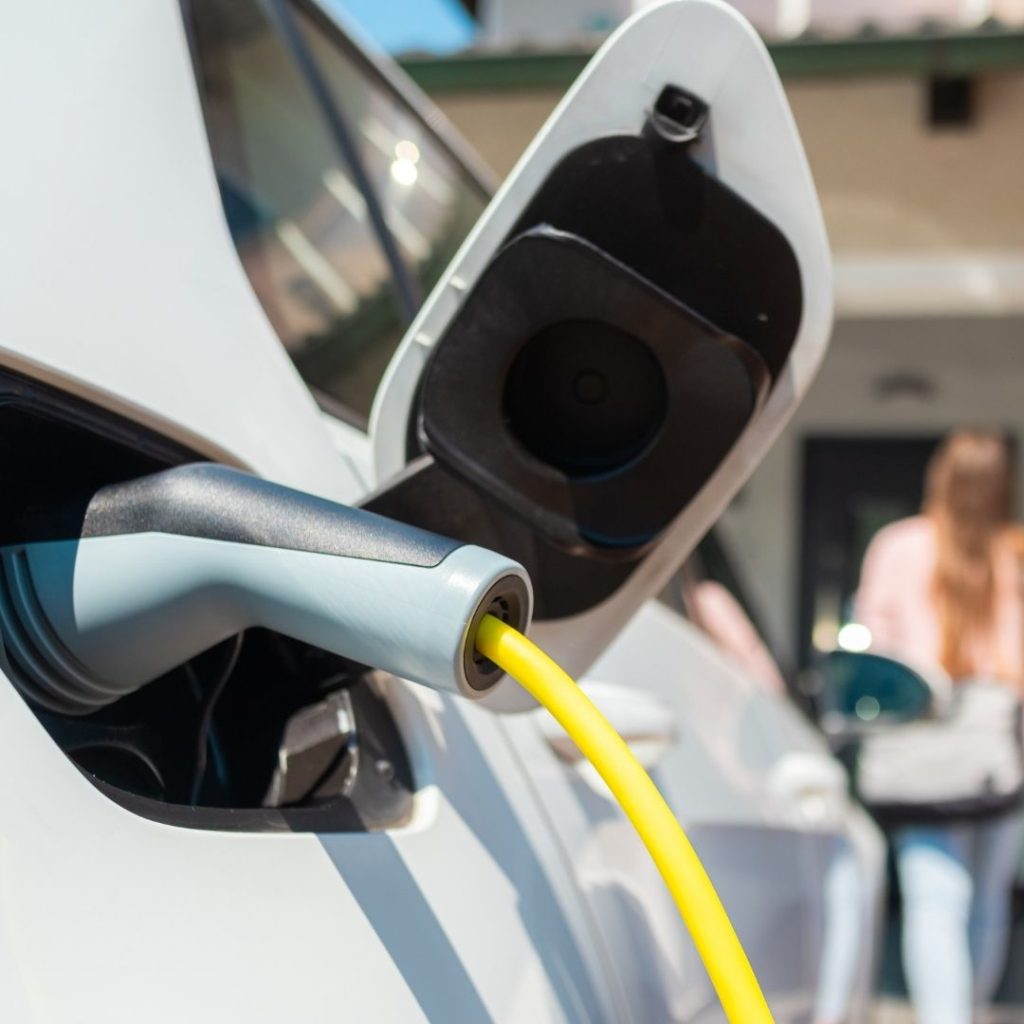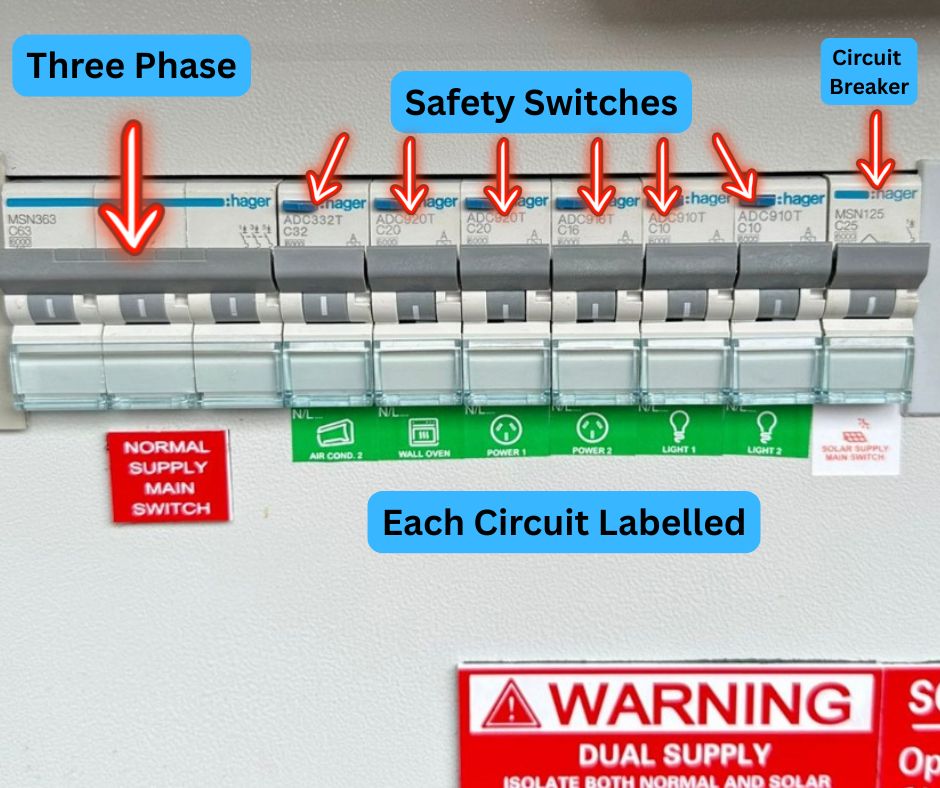Why Upgrading Your Switchboard is Crucial for Safe EV Charger Installation at Home
Absolutely! In numerous households throughout Melbourne, installing an EV charger frequently necessitates a switchboard upgrade. Many older switchboards lack the essential load capacity, RCD protection, or available circuit space required for the safe and compliant installation of an electric vehicle charger. Engaging a licensed electrician to conduct a thorough inspection is critical. This ensures your switchboard is upgraded accordingly, allowing your home to safely accommodate the charging of your EV without any related risks or complications. Prioritising safety should always be at the forefront when it comes to electrical installations, as it protects both your property and your family.

With the growing popularity of electric vehicles in Melbourne, an increasing number of homeowners are opting to install EV chargers in their garages or driveways. However, many individuals are unaware that proper preparation of your home’s electrical system is essential for a successful installation. This preparation begins with a comprehensive evaluation of your switchboard. It is vital to ensure that your electrical infrastructure can support the demands of an EV charger. This not only aids in maintaining safety but also enhances efficiency, making your charging experience significantly more reliable and effective.
At Direct Point Electrical, we have successfully installed numerous EV chargers across Berwick, Narre Warren, and Cranbourne in Melbourne’s outer east. In nearly every case, the first component we assess is the switchboard, verifying that it meets all necessary standards for safe and effective charging. Our expertise guarantees that each installation complies with local regulations while optimising performance. By prioritising safety and compliance, we offer peace of mind to our clients, ensuring that their charging solutions are both efficient and secure.
Why Do EV Chargers Require More Than Just a Standard Power Point for Installation?
EV chargers are distinctly different from standard household appliances such as your toaster or washing machine. Most residential charging units, particularly the 7kW and 22kW models, necessitate:
- A dedicated circuit specifically designed to manage the electrical load efficiently, ensuring safety and reliability.
- Mandatory RCD protection as stipulated by AS/NZS 3000 standards to mitigate electrical risks and enhance safety.
- Ample amp capacity, typically ranging from 32A to 50A, to accommodate the charger’s operational requirements.
- Effective load balancing to prevent the risk of overloading other circuits within your home, ensuring a stable power supply.
Therefore, connecting an EV charger to an outdated fuse box or overloaded switchboard is not only unwise; it poses substantial safety hazards and fails to comply with current regulations. For detailed guidance on the requirements for EV chargers in residential settings, it is essential to consult with professionals who understand the intricacies involved in these installations.
How Can You Identify If Your Switchboard Requires an Upgrade?
If your home was constructed more than two decades ago, it is highly probable that your switchboard lacks the capacity to support an EV charger effectively. Here are some indicators we assess during our evaluations:
- Old ceramic fuses or asbestos backing, both of which are outdated and hazardous materials that pose risks.
- The absence of RCD or safety switch protection, which is crucial for preventing electrical accidents and ensuring safety.
- Limited circuit space that restricts the installation of a new dedicated circuit for your EV charger.
- Signs of burn marks, buzzing noises, or frequent tripping when using appliances, indicating potential electrical issues.
- Lack of a 3-phase supply if you aim to install a faster 22kW charger, which requires additional capacity.
Any of these warning signs indicate potential risks for both safety and EV compatibility in your home and should not be overlooked. It is essential to address these concerns promptly to ensure a safe environment for your family and electronic devices, preventing future complications.
Note: The Electric Vehicle Council recommends installing a dedicated circuit for your EV. This precautionary measure prevents the overloading of existing circuits in your residence, enhancing safety. When establishing a dedicated circuit, it is advisable to opt for a 15amp outlet and charger instead of the standard 10amp circuit, as this adjustment can enhance your charging rate by 50% and significantly reduce your overall charging time.

What Steps Are Involved in Upgrading Your Switchboard?
At Direct Point Electrical, we strive to make the upgrade process as straightforward and stress-free as possible, ensuring a smooth transition to safer electrical systems:
- Site Assessment – We conduct a thorough inspection of your existing switchboard, ensuring that all wiring and the main power supply are evaluated for safety and compliance.
- Load Calculation – We evaluate whether your residence can handle the additional load from the EV charger, ensuring your electrical system is up to par.
- Upgrade Planning – If an upgrade is necessary, we provide a comprehensive quote for a new compliant switchboard complete with RCDs, surge protection, and sufficient space for the EV charger installation.
- Documentation & Compliance – We manage all necessary paperwork with your energy distributor (AusNet or United Energy) and issue a Certificate of Electrical Safety upon completion.
Depending on the current condition and configuration of your switchboard, most upgrades can be completed within a single day. This allows you to swiftly enjoy the convenience of charging your EV at home without unnecessary delays, ensuring you can hit the road with confidence.
What Are the Compliance Requirements for EV Chargers in Victoria?
All electrical work conducted in Victoria must adhere to the AS/NZS 3000 Wiring Rules, governing installations of EV chargers. A licensed electrician is required to:
- Implement RCD protection for the circuit, safeguarding against electrical faults and enhancing overall safety.
- Ensure that the load from the charger does not exceed the main switch capacity, preventing overloading.
- Submit necessary forms to your energy distributor to ensure compliance with local regulations.
- Provide a Certificate of Electrical Safety upon completion of the installation, guaranteeing that all work meets safety standards.
Attempting any DIY or unlicensed installations is not only illegal; it voids warranties and can lead to serious fire hazards or insurance claim denials. It is always best to consult with professionals to ensure your installation is safe, compliant, and reliable.
What Should You Consider If You Already Have Solar Panels or Batteries Installed?
This is fantastic! However, it remains essential to analyse how the EV charger will interact with your existing solar energy system. Balancing the load between solar energy, battery storage, and EV charging requires meticulous planning and consideration to ensure optimal performance.
We will collaborate closely with you to:
- Schedule charging times to maximise the utilisation of solar energy, ensuring efficiency and cost-effectiveness.
- Ensure that your inverter and battery configuration can accommodate the energy draw from the charger, preventing overloads.
- Recommend appropriate charger models that feature smart load management capabilities for optimal performance and integration with your solar system.
Is an Upgrade to a 3-Phase Power Supply Required for EV Charging?
Not necessarily. A 7kW charger operates effectively on single-phase power for most users. However, if:
- You desire faster charging times to reduce waiting and enhance convenience.
- You own two electric vehicles that need simultaneous charging.
- Or you are running high-load appliances simultaneously, requiring additional power supply.
… then considering a 3-phase upgrade could be advantageous. We can provide expert advice on this during your initial inspection to help you make informed decisions about your energy needs and optimize your charging experience.
Key Factors to Consider for a Successful EV Charger Installation
If you are contemplating the installation of an EV charger at your home, prioritising your switchboard is essential. At Direct Point Electrical, we offer free site inspections, transparent pricing, and a seamless process to ensure safe, efficient, and future-proof EV charging solutions tailored specifically to your home. We believe in delivering exceptional service that meets your unique requirements and enhances your charging experience.
Whether you reside in Berwick, Narre Warren, or any area in Melbourne’s outer east, we have the ideal EV charging solution to satisfy your unique needs and energy demands. Our dedicated team is committed to providing the best possible outcomes for our clients, ensuring that your EV charging needs are met with professionalism and expertise.
EV Charger Installations
The Article: Switchboard Upgrade for Home EV Charger Installation: Do I Need It? first appeared on https://writebuff.com
The Article Home EV Charger Installation: Is a Switchboard Upgrade Necessary? Was Found On https://limitsofstrategy.com
The Article Home EV Charger Installation: Do You Need a Switchboard Upgrade? First Appeared ON
: https://ad4sc.com

